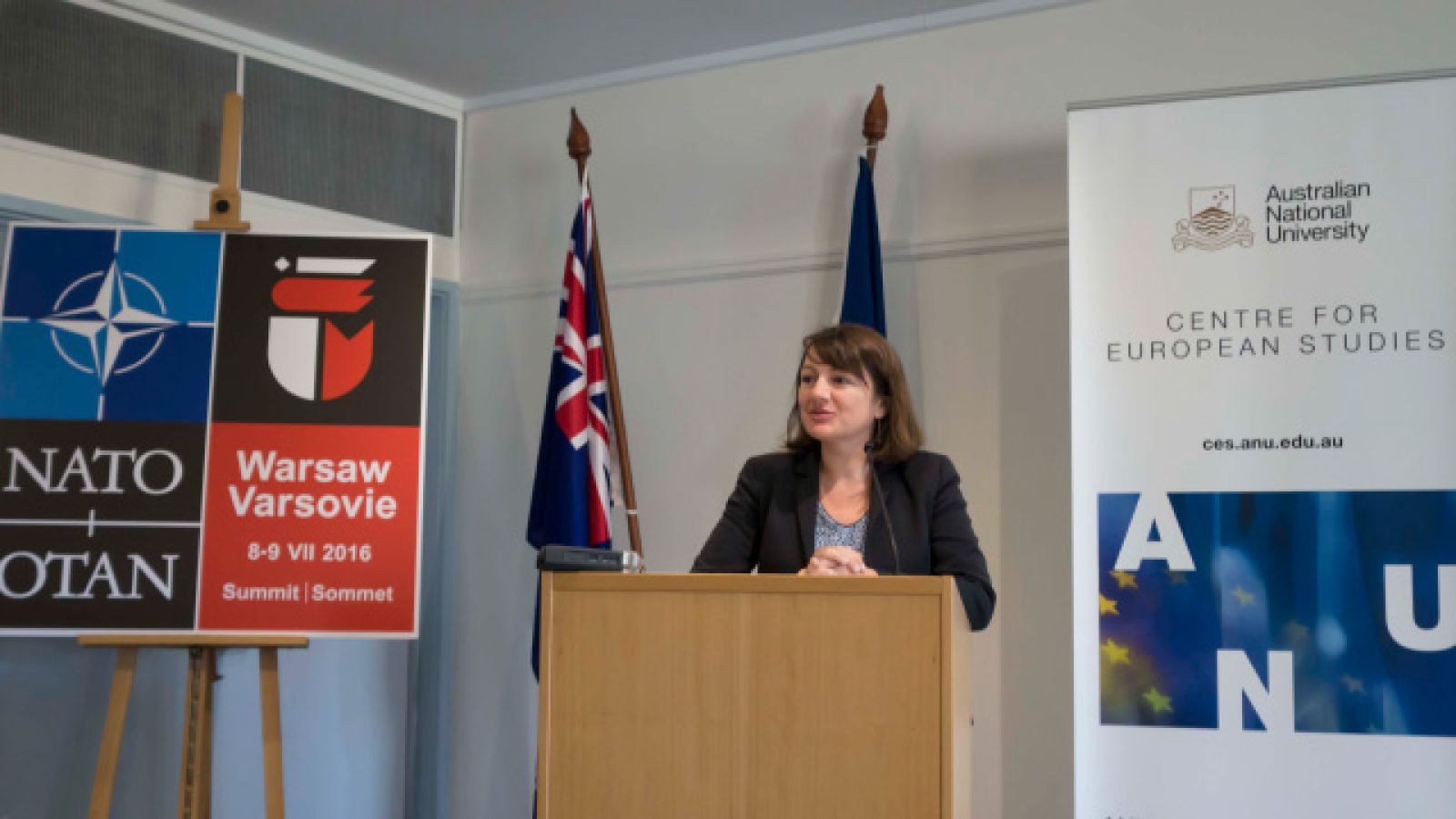Diplomats and defence officials discuss NATO summit at ANU

Lisa Picheny, a political officer from NATO headquarters, addresses the gathering
Brussels-based officials from the North Atlantic Treaty Organisation (NATO), have visited The Australian National University (ANU) to explain the alliance’s strategic direction and goals of the upcoming Warsaw Summit.
The June 8 forum at the ANU Centre for European Studies also featured scholars, Australian defence personnel and diplomats from Poland and Norway – representing NATO in Australia – along with other European Union states.
Lt. Col. Joanna Brain, from the Military Cooperation Branch at NATO headquarters, said the international security situation had changed since the last NATO summit in Wales in 2014.
She said the alliance was concerned about making its strategy current, and talked about the changing nature of security threats.
Strategies to defend and deter nuclear, hybrid, cyber, and terrorist attacks will be discussed in Warsaw, she added.
Lisa Picheny, a Political Officer in the Political Affairs and Security Policy Division in NATO’s headquarters, said Australia and NATO had made major strides since 2014 when the alliance gave Australia “enhanced opportunities”.
Polish ambassador Pawel Milewski, emphasised the need for a “universal, current, and decisional NATO strategy” which would be debated at the 27th summit starting on 8 July.
Several speakers referred to the need for NATO to project a “universal, 360 degree security structure” to both member states and those outside the alliance.
Norwegian ambassador, Unni Kløvstad, said her country relies on NATO as a cornerstone of its defence strategy, and would welcome further maritime patrols to secure its western and northern borders.
The consensus among the speakers was that the greatest contemporary threats to NATO are from the south and east.
The summit will also discuss ways to project strength and deterrence around Europe’s borders, including increased training with Iraqi forces, and help in securing the borders of Jordan, Tunisia, Ukraine, Georgia, and Moldova.
A military exercise underway in Poland, Anaconda 2016, demonstrates NATO’s increased commitment to securing its eastern flank. Speakers gave a strategic context for Anaconda and Australia’s role as a NATO partner state, particularly in operations in Afghanistan.
All speakers agreed that effective decisional capabilities were critical to NATO’s ability to provide security against threats.
This third strategic element is likely to be addressed in Warsaw through discussions about how to enhance decision-making processes to enable faster, more effective defence.
The gathering was also told to expect more talk of a greater commitment to communication, both with partner states and those not traditionally close to NATO.
Cooperation with partner states in exercises and command and control operations will promote security and make collaboration easier.
Engagement with potential aggressors through dialogue and military transparency will decrease the potential for misunderstandings that could lead to conflict, the forum was told.
This article was written by Marita Petherbridge, a Bachelor of European Studies student